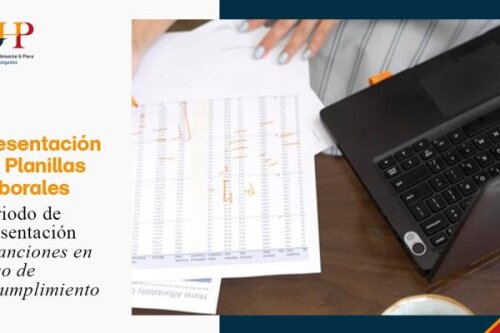Best Natural Resources Lawyers in Asunción
Share your needs with us, get contacted by law firms.
Free. Takes 2 min.
List of the best lawyers in Asunción, Paraguay
About Natural Resources Law in Asunción, Paraguay
Natural Resources Law in Asunción, Paraguay, involves the legal frameworks governing the use, management, and protection of natural resources such as minerals, water, woodlands, and biodiversity. As the capital city, Asunción plays a crucial role in the legal administration of these resources, reflecting the country's commitment to sustainable development and conservation. Paraguay boasts diverse ecosystems and significant agricultural lands, which necessitate a robust legal framework to manage these resources effectively and ensure compliance with both national and international regulations.
Why You May Need a Lawyer
Individuals or entities in Asunción may require legal assistance in the field of Natural Resources for several reasons. Common situations include obtaining permits for resource extraction or land use, negotiating agreements related to resource development, resolving disputes over land or resource rights, ensuring compliance with environmental regulations, and seeking compensation for environmental damages. A lawyer can provide invaluable expertise in navigating the complexities of these issues and ensuring that all legal requirements are met.
Local Laws Overview
In Asunción, the legal landscape surrounding natural resources is shaped by both national laws and international treaties to which Paraguay is a signatory. Key aspects include the Environmental Services Law, which provides guidelines on compensating for ecosystem services, and the Forestry Law, which regulates forest management and conservation. Additionally, water resources are managed under the Water Law, ensuring sustainable use and distribution. Compliance with environmental impact assessments is mandatory for activities that may affect biodiversity, adhering to standards set by SEAM (Secretariat of the Environment).
Frequently Asked Questions
What are the key natural resources in Paraguay?
Paraguay is rich in hydroelectric power, agricultural land, forest resources, and biodiversity. The country is one of the world's largest producers of organic sugar and renewable energy.
Can foreigners own land in Paraguay?
Yes, foreigners can own land in Paraguay with similar rights and obligations as nationals, though there are restrictions on land bordering other countries for national security reasons.
How is land use regulated in Asunción?
Land use in Asunción is regulated through zoning laws and environmental impact assessments to ensure sustainable development and conservation efforts are maintained.
What permits are required for resource extraction?
Permits for resource extraction depend on the type of resource. Typical requirements include an environmental impact assessment and government-issued mining or logging permits.
What role does citizen participation play in environmental decisions?
Citizens have the right to be informed and to participate in environmental decision-making processes, particularly regarding public consultations on environmental impact assessments.
How are disputes over natural resources resolved?
Disputes are typically resolved through legal proceedings in Paraguayan courts or via arbitration, depending on the nature of the conflict and parties involved.
Is environmental impact assessment mandatory for all projects?
Yes, an environmental impact assessment is mandatory for all projects that may significantly affect the environment, as part of compliance with SEAM regulations.
What are the penalties for non-compliance with environmental laws?
Penalties can include fines, revocation of permits, and in severe cases, suspension of business operations or legal action depending on the violation's gravity.
What environmental treaties is Paraguay a part of?
Paraguay is part of several international treaties such as the Kyoto Protocol, the Convention on Biological Diversity, and the Ramsar Convention on Wetlands.
How can I ensure compliance with local environmental regulations?
Engage with a legal expert specializing in environmental and natural resources law to guide you through regulations and ensure thorough compliance.
Additional Resources
For further assistance, consult the following resources and organizations:
- Ministry of the Environment and Sustainable Development (MADES)
- Dirección Nacional de Defensa, Salud y Bienestar Animal (DINASBA)
- Environmental Law and Policy Studies at Universidad Nacional de Asunción
- International organizations such as the UNDP's Environment and Energy programs in Paraguay
Next Steps
If you require legal assistance with natural resources in Asunción, it is important to seek out a lawyer with expertise in environmental law and natural resources. Start by researching legal firms specializing in this field, schedule consultations to discuss your specific needs, and choose an advocate who can navigate the complexities of local and international resources law. Additionally, staying informed on relevant laws and actively participating in public consultations can bolster your understanding and involvement in natural resource management.
Lawzana helps you find the best lawyers and law firms in Asunción through a curated and pre-screened list of qualified legal professionals. Our platform offers rankings and detailed profiles of attorneys and law firms, allowing you to compare based on practice areas, including Natural Resources, experience, and client feedback.
Each profile includes a description of the firm's areas of practice, client reviews, team members and partners, year of establishment, spoken languages, office locations, contact information, social media presence, and any published articles or resources. Most firms on our platform speak English and are experienced in both local and international legal matters.
Get a quote from top-rated law firms in Asunción, Paraguay — quickly, securely, and without unnecessary hassle.
Disclaimer:
The information provided on this page is for general informational purposes only and does not constitute legal advice. While we strive to ensure the accuracy and relevance of the content, legal information may change over time, and interpretations of the law can vary. You should always consult with a qualified legal professional for advice specific to your situation.
We disclaim all liability for actions taken or not taken based on the content of this page. If you believe any information is incorrect or outdated, please contact us, and we will review and update it where appropriate.















